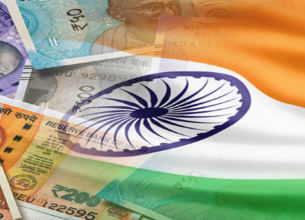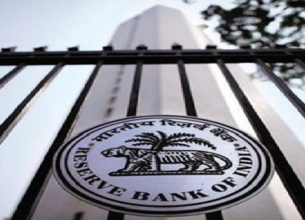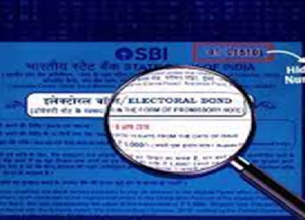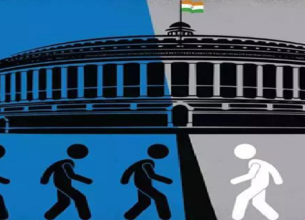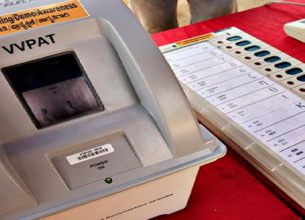SUPREME COURT REFUSES TO STAY POLL BOND SCHEME
21, Jan 2020
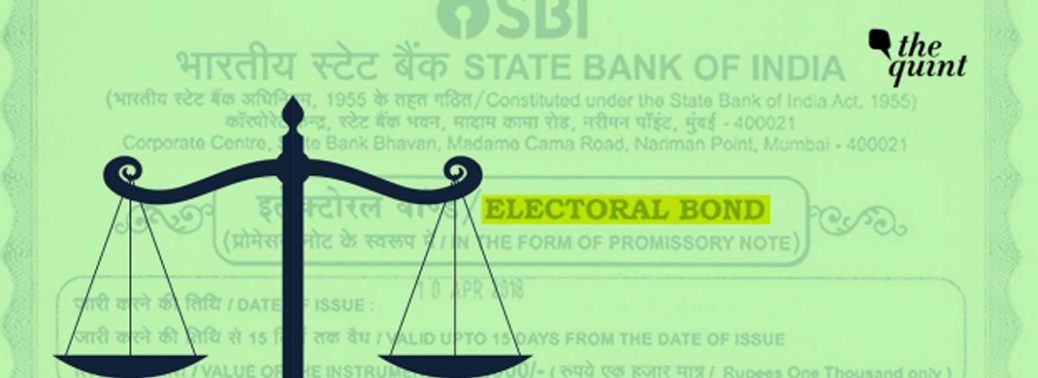
Prelims level : Election & Electoral Returns
Mains level : GS-II Salient features of the Representation of People’s Act.
Why in News?
- The Supreme Court recently refused to order an interim stay on the Electoral Bond Scheme.
About Electoral bonds:
- Electoral bonds will allow donors to pay political parties using banks as an intermediary.
- Although called a bond, the banking instrument resembling promissory notes will not carry any interest.
- The electoral bond, which will be a bearer instrument, will not carry the name of the payee and can be bought for any value, in multiples of Rs 1,000, Rs 10,000, Rs 1 lakh, Rs 10 lakh or Rs 1 crore.
- As per provisions of the Scheme, electoral bonds may be purchased by a citizen of India, or entities incorporated or established in India.
- A person being an individual can buy electoral bonds, either singly or jointly with other individuals.
- Only the registered Political Parties which have secured not less than one per centof the votes polled in the last Lok Sabha elections or the State Legislative Assembly are eligible to receive the Electoral Bonds.
- The electoral bonds are aimed at rooting out the current system of largely anonymous cash donations made to political parties which lead to the generation of black money in the Economy.
Do Private Companies are Eligible for Electoral Bonds?
- Prior to 2017, as per Section 182 of the Companies Act, 2013, a company can donate only up to 7.5% of its average profit of the last three years, and must disclose this amount and the beneficiary political party.
- Now, through the electoral bonds, there is no limit to the amount companies can donate, and the requirement for such firms to have existed for the last three years on a profit-making basis has also been deleted.
Whether foreign companies are eligible for Electoral Bonds?
- The amended Companies Act now allows any foreign company registered in India to make contributions through bonds to political parties, subject to legitimate doubts about who or where its real owners are, or what its source of funding is.
What are the Concerns?
- The Election Commission (EC) and Reserve Bank of India (RBI) saying that the electoral bonds as proposed would have serious impact on the transparency aspect of funding of political parties, with the possibility of shell companies being created only for making donations and warned it could increase the use of black money.
- Coupled with the removal of cap (7.5%) on Foreign Funding, electoral bonds invite foreign corporate powers to impact Indian politics.
- Companies no longer need to declare the names of the parties to which they have donated so shareholders won’t know where their money has gone.
- With electoral bonds there can be a legal channel for companies to round-trip their tax haven cash to a political party.
- If this could be arranged, then a businessman could lobby for a change in policy, and legally funnel a part of the profits accruing from this policy change to the politician or party that brought it about.
- Observers had expressed an apprehension, at the introduction of the scheme, that it had the potential of choking the funding for all opposition parties, and may give a huge undue advantage to the ruling party.



